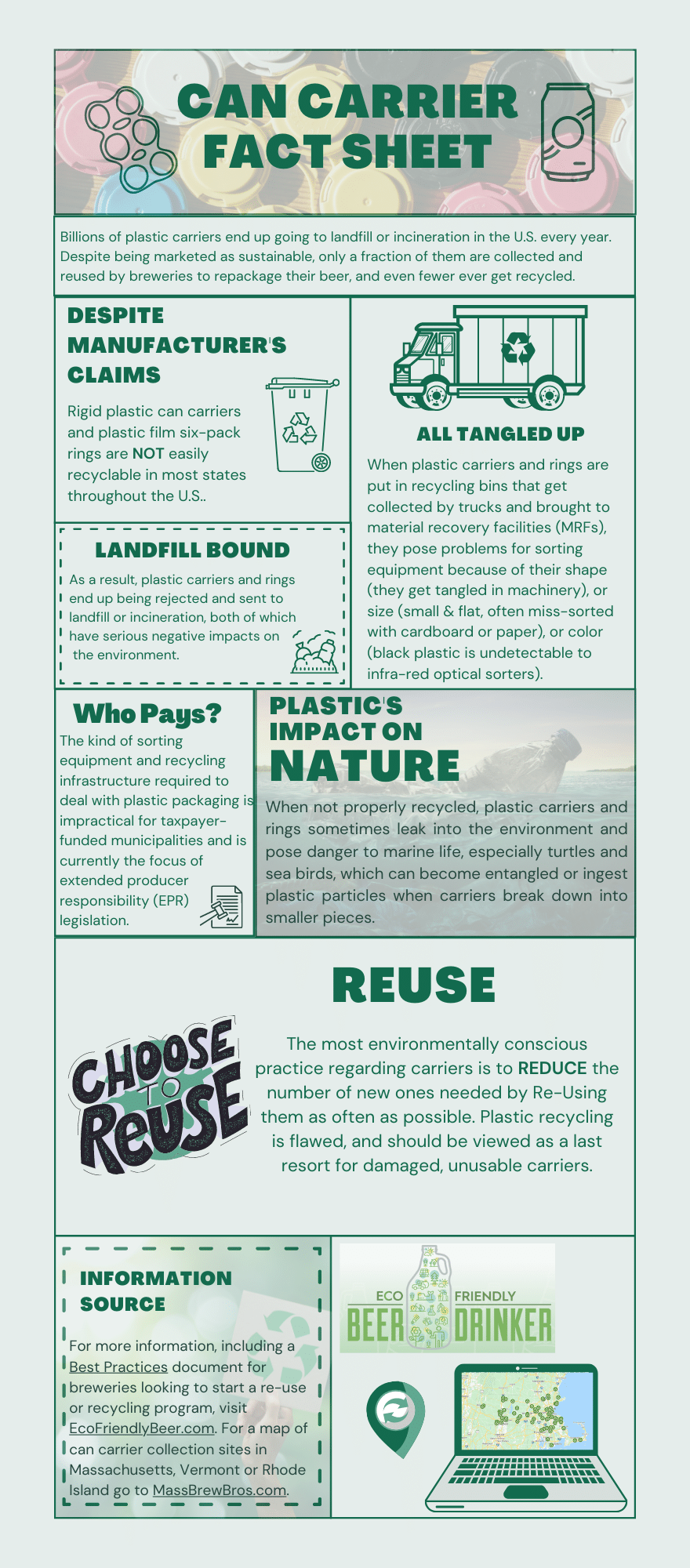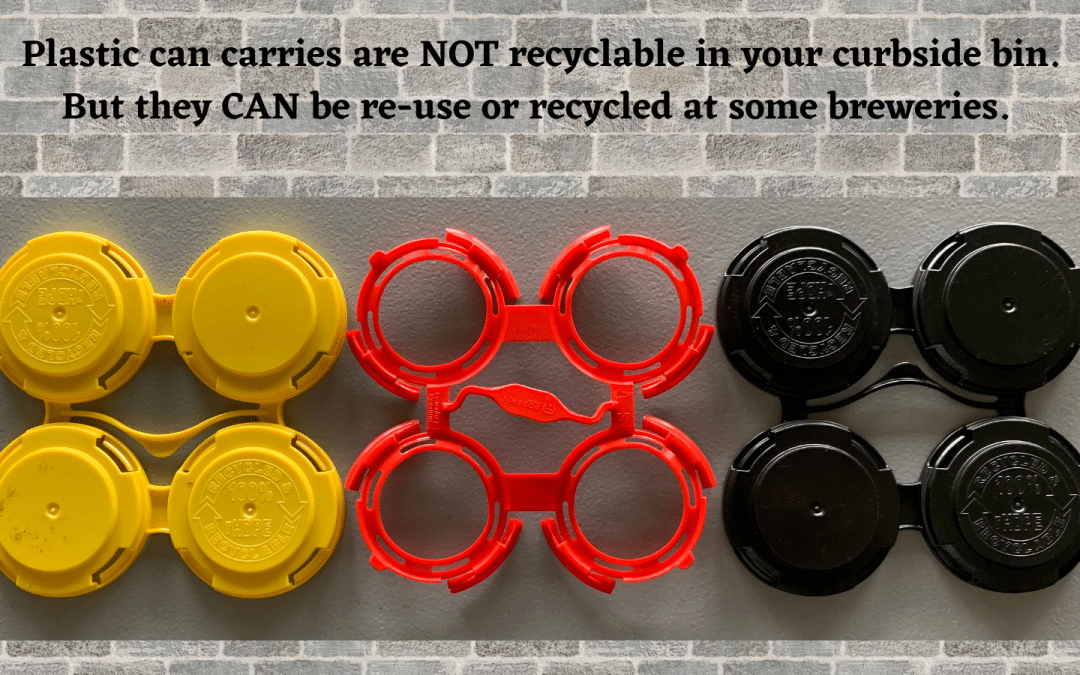
- Despite the manufacturer’s marketing claims, rigid plastic can carriers and plastic film six-pack rings are NOT curbside recyclable in Massachusetts and most other states.
- This has been verified by the RecycleSmart website, an initiative of the Massachusetts Department of Environmental Protection, and confirmed by the three largest waste disposal companies in the state: Casella, Republic, and Waste Management.
- Rigid plastic can carriers are made from HDPE #2 plastic, but can only be recycled when delivered in large quantities to a plastics recycling processor, not by a single-stream curbside recycling collection company.
- Flimsy film 6-pack rings are made from photodegradable LDPE #4 plastic, which can only be recycled if turned in at a supermarket or municipality transfer station that offers plastic film recycling, or mailed back to its manufacturer through the free (no postage charge) RingRecycleMe program.
- Mass. Brew Bros. and Eco-Friendly Beer have created a map of verified can carrier collection locations in Massachusetts where consumers can return them to be reused or properly recycled. There are also affiliate can carrier collection programs in Vermont, Rhode Island and Chicago.
*Estimates for can carrier use, re-use and recycling were calculated using data collected by the Mass. Brew Bros. through correspondences with various Massachusetts breweries, officials from recycling groups, and the state’s largest waste management companies. The 10 million figure doesn’t include beer purchased in Massachusetts from out-of-state breweries. When those figures are included the total number of can carriers entering the waste stream is significantly higher.


When will the USA government get the laws in line and make beverage products that now require plastic connectors only available with thin cardboard boxes.
It’s amazing how rich people can shoot holes in the ozone layer with a rocket ship every other week oh, but we still can’t figure out how to keep these plastic materials out of the ocean. I guess the priorities are rich people get what they want for people to get to watch the planet die.
Hey Orchid: It’s a frustrating world for sure. Not to get on my soap box, but until we rethink our current linear economy (take-make-waste), which doesn’t figure in externalities like pollution, and measures success by Gross Domestic Product (GDP) while ignoring the Genuine Progress Indicator (DPI), there will continue to be a plastic pollution crisis. If we transition to a circular economy, materials will be recovered and used over and over again, or they will be phased out (like much of the current plastic packaging) for not being sustainable. It will require bold leadership and better legislation than we have now, but I’m optimistic that it’s going to happen.
The way I see it the #4 type plastic flimsy film six pack rings should be able to go with the plastic bag recycling containers at the grocery store. They take #2 and #4 plastic bags. These 6 pack ring holders are non rigid plastic and are essentially thick#4 plastic bags. I might be wrong but I think they would be ok mixed with the plastic bags at the grocery store collection.
Hey Paul: Right you are. Plastic 6-pack rings can be recycled with other plastic film, like plastic bags which some supermarkets accept. Unfortunately, they are a menace to wildlife when leaked into the environment, even the photodegradable ones because they break down into micro plastics that are often consumed by marine life and birds who mistake it for food. I’ve committed to consuming my beer either on draught (in reusable glassware) or in refillable growlers to avoid all the single-use waste that unfortunately accompanies my favorite beverage.
One of the local breweries in Oregon directed me to the following website to find a recycling center for the plastic can toppers: https://paktech-opi.com/recycling-drop-off/
Hi Gareth:
I’m aware of PakTech’s “recycling map.” It’s great if you are located in the Eugene, OR area where PakTech will actually take them back and recycle them into new PakTechs. Unfortunately, the map is often inaccurate in many other places around the U.S. Also, the breweries are left with funding the recycling programs, which doesn’t seem very fair when a product that’s marketed as “100% recyclable” requires a special recycling program funded by breweries. In any case, the best thing a consumer can do is to bring them back to a smaller brewery that will reuse them.